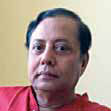Issue No.18 / November 16-30,2015

Some other acts of colourable transactions detected by us related to round-tripping like sending the black money outside the country and then bringing it back for investment in the shares of the companies
Unlike the regular tax desk which is manned by a tax officer whose job is to levy tax on you, this desk is manned by a non-serving tax officer who wishes to share his experience of 35 years in the tax department, while discussing tax provisions. It is advantageous to know how the tax department thinks and acts when, as said by Benjamin Franklin, “In this world nothing is certain except death and taxes”
All over the world, taxation legislation is normally difficult. Einstein subscribed to this view when he said, “The hardest thing in the world to understand is the Income Tax Act.” If the law is complicated, the Th e simple things we should do is make a list of our expenses and then look for provisions of the Act which are applicable. Taxable income should be worked out and online return of income should be then filed by the due date. Th e income-tax department would process the return and refund, if any, and it will be credited to the bank account of the taxpayer within four months.
As per the latest information, about 4.5 crore people file returns of income and out of which in only three lakh cases, (which works out to less than one percent), notices for scrutiny are issued. The balance 99 percent of returns of income are accepted. However, some taxpayers do not like keeping the process simple and indulge in colourable transactions which result in protracted litigation. I will discuss a few cases where I was personally associated as a tax administrator.
Death is always a sad thing but can you believe that death can be used as a tool for money laundering? We observed this in a few cases in Mumbai. We also discovered a leading advocate, who is no more today, as the architect behind this. The advice given by the advocate and practised by a few of his clients was to locate people who were in their death bed and then talk to them and their immediate family members to solicit his Will for a specified amount of cash and jewellery. Th e author of the Will is assured that he will not part with any of his personal assets and that he would only be a name lender for which a commission would be paid to him and to his family. Th e financial status of the person giving the Will was never a condition. Th e beneficiary of the Will would credit the cash and valuables in his books as his capital received in consequence of such a Will aft er the death of the author of the Will. Th e black asset of the beneficiary would thus become white.
Death is always a sad thing but can you believe that death can be used as a tool for money laundering?

Some other acts of colourable transactions detected by us related to round-tripping like sending the black money outside the country and then bringing it back for investment in the shares of the companies through the tax convenient Mauritius route or taking loan from friends abroad against hawala money reached to them. In one case, we found that an important person managed to get full scholarship for his son from a well-known business school in the U.S. against a cover provided to the university. We also detected in some cases of foreign shows where our celebrities from the film industry had participated, that things were not very clear. Th ere is a provision for substantial deduction in the Income-Tax Act against the income of actors earned abroad from shows and this worked as incentive in a few cases to show higher income in foreign exchange than actually earned. The human mind is a genesis of new ideas and we in the tax department are provided with good opportunities to see them and investigate them.
The purpose of this column is to enlighten the readers that every year amendments come in the I-T Act to deal with colourable transactions. Once caught, penalty, together with tax penalty which may go up to 300 percent of tax, is collected. Cases are also processed for prosecution. Section 56 of the I-T Act has recently been amended. Gift s other than gift s from close relatives have to be taxed in the hands of beneficiaries aft er a prescribed amount. Also immovable property received without consideration or for a consideration less than the stamp duty values will be taken for taxation in the hands of beneficiaries unless received from close relatives.
Between tax planning by legitimate means and tax evasion comes a category of aggressive tax planning. Apparently, aggressive tax planning is not illegal but it gives rise to litigation. It is not advisable for individual taxpayers to go for aggressive tax planning as the cost of litigation may be more than the tax saved

In one case, a lady, who was a homemaker and not much educated, showed in her return of income that she received huge money as she won a jackpot at the Mahalaxmi Race Course, Mumbai. Th e money was received by cheque aft er deducting tax at source. Money so received was held as unexplained income as she failed to prove the genuineness of the transaction in the races to win the jackpot.
It is true that as a businessman, your objective is to earn income but income earned honestly with hard work gives more satisfaction than income earned dishonestly
Payment of tax is our duty and it should be just seen as a cost of earning income. Saving tax by legitimate means under the various provisions of the I-T Act is always advisable. Tax evasion is illegal and is punishable with penalty and prosecution.
Between tax planning by legitimate means and tax evasion comes a category of aggressive tax planning. Apparently aggressive tax planning is not illegal but it gives rise to litigation. It is not advisable for individual taxpayers to go for aggressive tax planning as the cost of litigation may be more than the tax saved. Big companies go for it and in a sense, the I-T Act benefits from it. Aggressive tax planning is based on loopholes in the law as found by clever tax advocates and aft er litigation, the law gets corrected by amendments. The I-T Act gives incentives by granting tax holidays in certain business sectors. Taxpayers should keep those provisions in mind while starting new business or while expanding their business. Do not concel income and paying less tax creates fear which does not allow you to enjoy fully.
Finally, I will advise successful taxpayers to go for philanthropy as it gives true satisfaction while at the same time it saves tax. Th e Gandhian philosophy of trusteeship that the rich are the trustees of wealth for the poor should be followed for inner happiness.
BY S K JHA